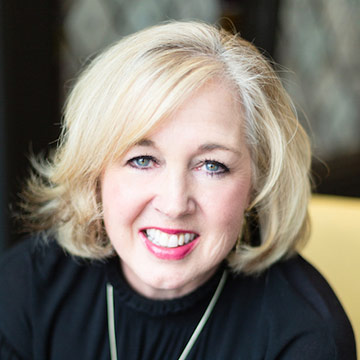Several years ago, I was invited to be the speaker at a women’s event. I drove more than an hour to spend an evening with women I had never met, but I’m always thrilled when I have the opportunity to talk about Jesus. I arrived early and found the event team scrambling to finish last-minute details. I was invited to have a seat in the fellowship center where the event was taking place, and I decided to use the time to think through my notes and pray for those who were coming.
As I waited, another woman made her way into the church, and I watched as the organizers ignored this newcomer. I was curious, so I made my way over to the woman and introduced myself. Within a few minutes, I discovered she was new to the church and didn’t know anyone. I invited her to come sit by me and I introduced her to others as they entered the room. I wish I could say that women were excited to meet this stranger, but instead, I left that evening with a feeling that I was the only one who engaged with her. Everyone else seemed more caught up in the friends they already knew, and their conversations centered on “insider dialogue,” leaving the guest feeling left out. I had this sinking feeling on the drive home that this guest would never make her way back to a women’s gathering and maybe never come back to that church.
I wish I could say this was an isolated incident, but my instinct and experience in women’s ministry says this is more common than we would like. For all the talk about being a welcoming church, we often fall short in this area. We put a lot of effort into being a friendly church, but how can we shift our focus from being more than a friendly church to a church where you make friends?
Being welcoming should be an essential part of the culture you build within your church. Whether it’s a first impression or connecting new members to others, there’s more to it than hanging the welcome sign on the front door. When you look at the life of Jesus, you find several instances when Jesus was invited to the homes of sinners and tax collectors. The story of Zacchaeus in Luke 19 shows that Jesus was welcomed into his house, and Jesus made a point to tell his disciples in Matthew 19 that children are always welcome. Jesus built His life on welcoming others to follow Him, and He also accepted hospitality from those who extended it.
As the fall season approaches, this is an opportune time to invite new women to Bible studies, include them in your events, and equip others to be a friend to those who not only need biblical community but need a relationship with Christ. Here are a few thoughts to get you thinking about this important topic. I encourage you to use this as a starting point in your next planning meeting and add your own ideas that make sense for your community and your context.
First, assign people to be greeters, whether it’s an event, your church service, or a Bible study. And enlist women who are good at this! Find women who can show up early, will engage with everyone who walks in the door, and are equipped to introduce newcomers to other people. If they are new to your church, consider having something you can physically give them, such as a map or a schedule, so they feel more confident about being in a new place. Instruct your greeters to write down their names and phone numbers on the printed piece so each guest has a personal connection.
Second, connect women with other women who are in a similar age group or life stage. Are they single? New mom? Empty nester? Similar vocation? It’s easier to connect with others when there is a common interest or life stage. Of course, it’s never a bad idea to connect women of various generations, but for first-time guests, similar backgrounds can be helpful.
Third, have a plan to follow up with those who are visiting or are a guest, but also give them space. No one needs three phone calls in one week, but a quick text message, an email, and a phone call from different people in the church will let them know they were welcomed. Also, remember women have different personalities and respond to follow-up in different ways. Extroverts might be excited to hear back from someone, but an introvert might want you to be a little less enthusiastic!
Fourth, I think the best way to welcome others is to find ways to connect to someone outside of the church walls. When my husband and I were first married, there was a couple who invited new people over to their house for dinner and board games. We were the recipient of their kindness, and they continue to be some of our closest friends. After thirty-four years of friendship, we have raised our children, grieved over losses, stayed connected through out-of-state moves, and encouraged each other in our walks with the Lord. I have made new friends because they continue to practice hospitality to strangers.
Finally, ask the question, “Do I welcome others who aren’t like me?” As humans, we tend to gravitate toward women who might look like us, dress like us, or be in the same socioeconomic level. James warns against this when he writes in James 2:1-4, “My brothers and sisters, do not show favoritism as you hold on to the faith in our glorious Lord Jesus Christ. For if someone comes into your meeting wearing a gold ring and dressed in fine clothes, and a poor person dressed in filthy clothes also comes in, if you look with favor on the one wearing the fine clothes and say, ‘Sit here in a good place,’ and yet you say to the poor person, ‘Stand over there,” or “Sit here on the floor by my footstool,’ haven’t you made distinctions among yourselves and become judges with evil thoughts?”
Developing a welcoming culture in your ministry is the first step, so take time to consider how you are doing in this area. It could be the first step to someone becoming a Christian, and you might just make a new friend.

Kelly is the Manager of Magazines/Devotional Publishing and Women’s Ministry Training for Lifeway Christian Resources. She is the author of Ministry to Women: The Essential Guide to Leading Women in the Local Church and contributor to the Lifeway Women’s Bible, as well as the Lifeway Women Advent and Easter studies. In addition, she is the co-host of the MARKED podcast for Lifeway Women. She has a Master of Theology degree from Gateway Seminary and is currently pursuing her Doctorate in Ministry degree.

